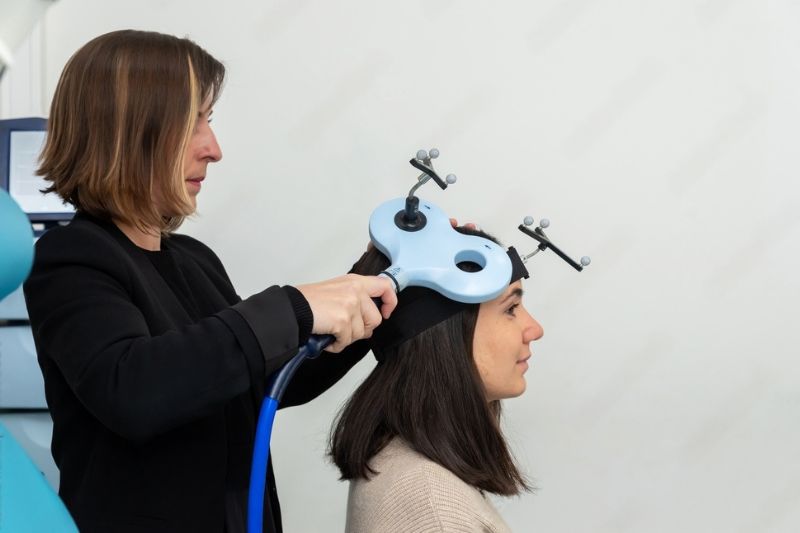For individuals considering Transcranial Magnetic Stimulation (TMS), gaining a clear understanding of what to expect during your first session can significantly ease any apprehensions and set the stage for a positive therapeutic experience. Knowing the procedure details, including its non-invasive nature and the typical duration of a session, can help prepare you mentally and emotionally, ensuring you step into the treatment with confidence and a positive outlook.
A thorough medical assessment will be carried out to ensure your suitability for Transcranial Magnetic Stimulation (TMS). This includes reviewing your medical history and any contraindications, such as the presence of metal implants or a history of seizures.

You will be comfortably seated in a specially designed chair, and a qualified healthcare professional will carefully position the Transcranial Magnetic Stimulation (TMS) coil on your head, aligning it precisely according to your individualized treatment plan. During the procedure, you may hear a distinct clicking sound emanating from the coil and feel a light tapping sensation on your scalp, akin to gentle drumming fingers. Although some individuals may experience this as unusual, any discomfort encountered is typically minimal and manageable. Each treatment session is meticulously timed to last anywhere from 30 to 60 minutes, ensuring effectiveness while maintaining patient comfort. Upon completion, there is no recuperation period needed, allowing you to immediately resume your normal daily activities without any significant interruptions or side effects. This seamless integration of Transcranial Magnetic Stimulation (TMS) therapy into your routine offers a convenient and non-invasive option for addressing specific health concerns.
Post-treatment, it's common for individuals to experience mild headaches or a sense of discomfort in the scalp area. These symptoms are typically temporary and tend to diminish following additional sessions. To achieve optimal results, maintaining a schedule of regular appointments is crucial. This often entails committing to 4-5 sessions a week over the course of several weeks. Such a consistent approach is essential to ensure the effectiveness of the treatment and to achieve the desired outcomes.
